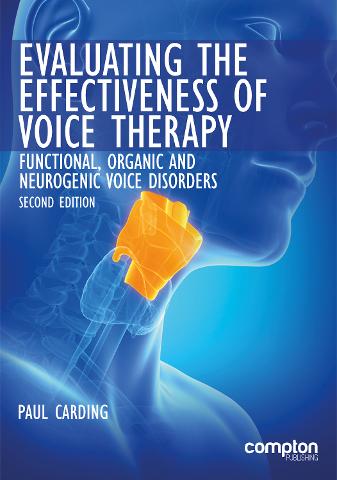
One of the first books to address the need for a robust evidence base for the treatment of functional voice disorders, Dr Carding's book addresses the major advances in the evaluation of treatment of a range of functional, organic and neurogenic voice disorders.
The book is designed to be practical, and covers issues including the importance of study design and choosing appropriate voice outcome measures and there are five major chapters that identify, summarise and critically appraise the literature pertaining to voice therapy efficacy for functional voice disorders, nodules, organic voice disorders, unilateral vocal fold paralysis and Parkinson. The book is organized so that voice clinicians and researchers will be able to quickly locate and understand the evidence base for specific client groups.
View sample chapters and author biographies here